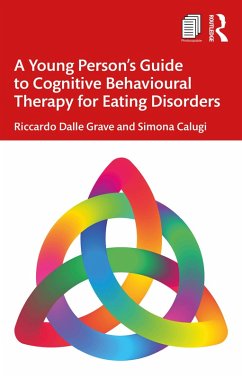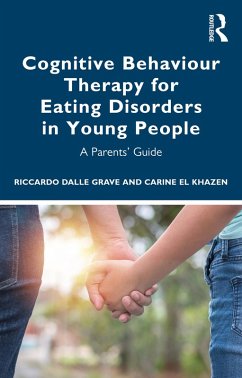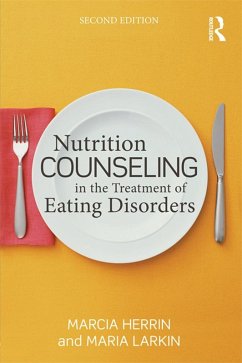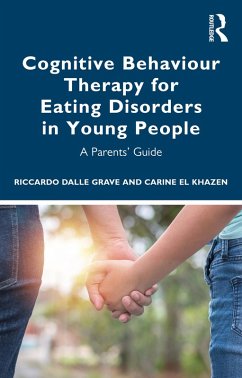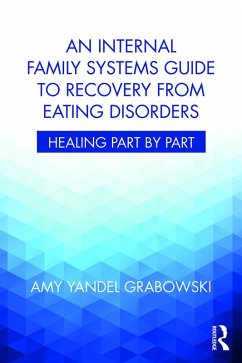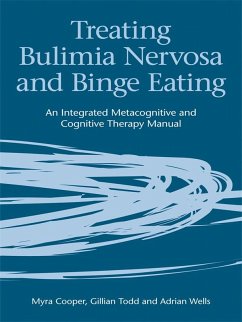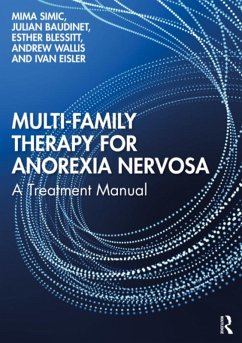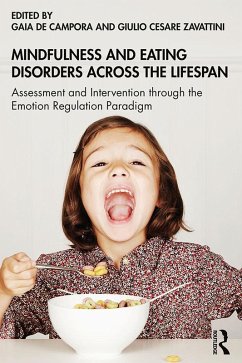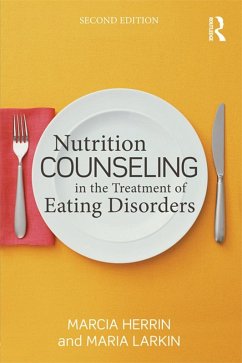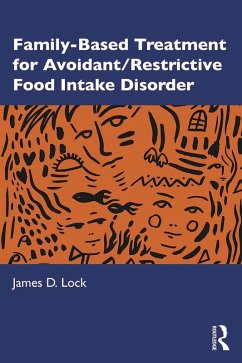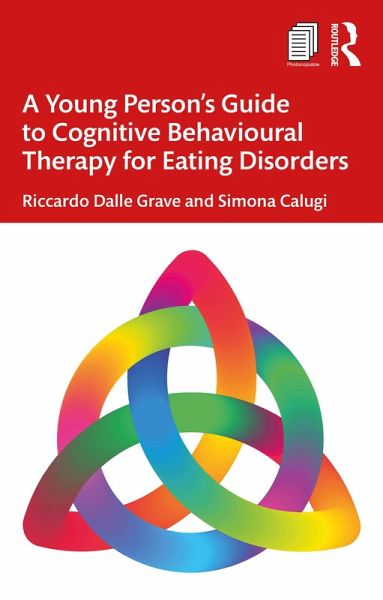
A Young Person's Guide to Cognitive Behavioural Therapy for Eating Disorders (eBook, ePUB)

PAYBACK Punkte
11 °P sammeln!
A Young Person's Guide to Cognitive Behavioural Therapy for Eating Disorders is a state-of-the-art guide for young patients struggling with disordered eating based on enhanced cognitive behaviour therapy (CBT-E).CBT-E is one of the most effective treatments for eating disorders, including anorexia nervosa, bulimia nervosa and binge-eating disorder, which has recently been adapted for adolescents. Written by two experienced clinicians and clinical researchers working daily with teenagers suffering from eating disorders, and their parents, this book offers an effective mix of theory and clinical...
A Young Person's Guide to Cognitive Behavioural Therapy for Eating Disorders is a state-of-the-art guide for young patients struggling with disordered eating based on enhanced cognitive behaviour therapy (CBT-E).
CBT-E is one of the most effective treatments for eating disorders, including anorexia nervosa, bulimia nervosa and binge-eating disorder, which has recently been adapted for adolescents. Written by two experienced clinicians and clinical researchers working daily with teenagers suffering from eating disorders, and their parents, this book offers an effective mix of theory and clinical expertise that will appeal to all readers. The volume starts with a presentation the most current facts on eating disorders. Part 2 then provides young with eating disorders a complete description-accompanied by clinical examples and helpful vignettes on how to implement the main CBT-E procedures.
While this book is specifically tailored for young people aged between 15 and 25 years with eating disorders treated with CBT-E, it will also be useful for all young persons affected by eating disorders, and clinicians using CBT-E with young patients.
CBT-E is one of the most effective treatments for eating disorders, including anorexia nervosa, bulimia nervosa and binge-eating disorder, which has recently been adapted for adolescents. Written by two experienced clinicians and clinical researchers working daily with teenagers suffering from eating disorders, and their parents, this book offers an effective mix of theory and clinical expertise that will appeal to all readers. The volume starts with a presentation the most current facts on eating disorders. Part 2 then provides young with eating disorders a complete description-accompanied by clinical examples and helpful vignettes on how to implement the main CBT-E procedures.
While this book is specifically tailored for young people aged between 15 and 25 years with eating disorders treated with CBT-E, it will also be useful for all young persons affected by eating disorders, and clinicians using CBT-E with young patients.
Dieser Download kann aus rechtlichen Gründen nur mit Rechnungsadresse in A, B, BG, CY, CZ, D, DK, EW, E, FIN, F, GR, HR, H, IRL, I, LT, L, LR, M, NL, PL, P, R, S, SLO, SK ausgeliefert werden.




